#dietary sources of iron
Text
#how to increase iron levels#life chart#coffee with meals#do not drink#vitamin c calcium#different age#iron levels#iron supplementation#increase iron#c calcium#increase iron level#cooked foods#intake vitamin#intake calcium#increase iron levels quickly#intake vitamin c#how to increase iron levels quickly#increase iron levels#dietary sources of iron#iron absorption enhancers#sources of iron#raise iron levels#iron skillet#highest risk#iron absorption#dietary sources#low iron levels#cast iron skillet#healthier drinks#raise iron
0 notes
Text
https://www.secondmedic.com/blogs/iron-rich-foods
#iron-rich foods#nutrition#iron deficiency#dietary sources of iron#anemia prevention#healthy eating.
0 notes
Quote
Food-rights advocates allege that religion and caste are influencing the decision of authorities in denying nutritional food to the population. One result of this is the large-scale prevalence of deficiency diseases like anaemia, goitre, rickets and night blindness. Contrary to claims, the majority of the population in India is non-vegetarian — only 39 per cent of the population identified themselves as “vegetarians”, according to the new Pew Research Center survey published in July 2021. “The myth of vegetarianism is denying poor and lower-income groups from eating meat and eggs,” Karpagam says. “The ban on slaughter of cattle in states like Karnataka and Uttar Pradesh is denying the poor their access to affordable sources of protein like beef. Those who are socio-economically better off have access to dairy products like milk, paneer and ghee. They don’t suffer much but they too have Vitamin B12, iron and calcium deficiencies. “Moreover, meat and eggs are considered impure by many. People are criminalised and killed even on suspicion of eating or carrying meat. Children (in schools through mid-day meals) and women both are victims of dietary discrimination. Therefore, India suffers from very high malnutrition.” According to women and child development ministry estimates, 33 lakh children in India are malnourished and over 50 per cent cases are severe.
Maitreyee Boruah, ‘Lack of nutritious food fuelling anaemia in women’, Happiest Health
#Happiest Health#Maitreyee Boruah#India#Food-rights advocates#anaemia#goitre#rickets#night blindness#deficiency diseases#Pew Research Center#Sylvia Karpagam#Karnataka#Uttar Pradesh#affordable sources of protein#Vitamin B12#iron#calcium#malnutrition#dietary discrimination#Ministry of Women and Child Development#malnourishment
84 notes
·
View notes
Text
the "superfoods" you should incorporate into your diet
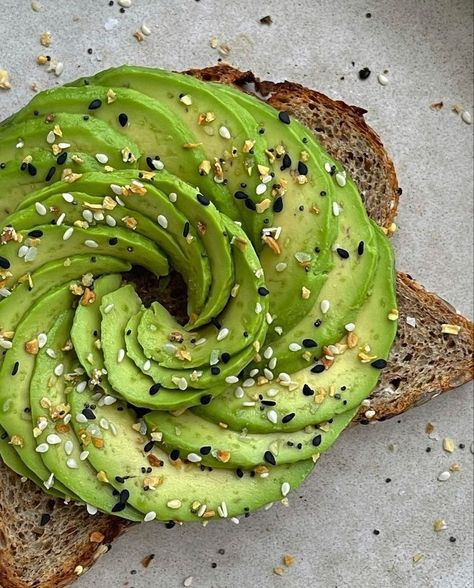
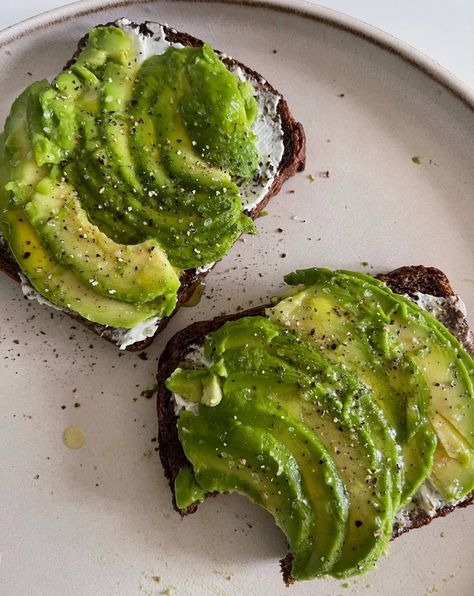
first of all, what are superfoods, and why are they so beneficial to our health? are those that in addition to feeding us have beneficial properties for health and are 100% natural, their origin is mainly vegetable and raw consumption, have a high content of fiber, minerals, proteins and vitamins, many of this help strengthen the immune system and promise the extension of a long healthy life.
and these are some of the foods you should incorporate into your diet.
goji berries: high in vitamins and minerals
acai berries: beneficial for overall health and boost performance. high in antioxidants, vitamins, minerals, and essential fatty acids.
chia seeds: high in vegetable fiber, omega-3 fatty acids, and high-quality protein.
ginger: it is attributed with properties against digestive discomfort and headaches. it also has an anti-inflammatory effect.
avocado: high in healthy fats, antioxidants, it has numerous micronutrients among which are vitamins C, vitamin B5, and vitamin K.
green tea: accelerates metabolism, detoxifying.
matcha: rich in antioxidants, polyphenols, and EGG, responsible for helping to protect against heart disease, helps regulate blood sugar, and accelerates metabolism.
quinoa: high protein concentration, rich in fiber and vitamins.
spinach: high concentrations of vitamins C and A, flavonoids, omega-3.
curcuma: increases serotonin production, helps regulate menstrual cramps and headaches.
walnuts: source of omega-3, protects our heart and cholesterol, we will get protein, vitamin E, fiber, healthy fats and lots of energy.
broccoli: very low caloric intake, rich in vitamin A and beta-carotene (a great antioxidant), vitamin C, fiber and folic acid.
seaweed: all are alkalizing and a good source of dietary fiber, antibacterial, anti-inflammatory, and antioxidant properties. contain healthy fatty acids and provide plenty of calcium, iron, and iodine.
and many more…! i am getting into the world of healthy eating to incorporate it into my day-to-day and I will continue to bring you posts related to this so that you also know about it and you can have a really healthy diet 🤍
this article has been written with the help of different sources.
#green juice girl#that girl#it girl#pink pilates princess#clean girl#health and wellness#healthy#healthy living#healthy weight loss#health#healthy tips#wellness#healthy diet#healthy lifestyle#healthy life tips#levelup#leveling up#level up journey#weightlosstips#lose weight#dream life#dream body#dream girl#self esteem#self care#self improvement#self love#self growth#self gratitude#divine feminine
2K notes
·
View notes
Text

Monster Energy
Sources include: USDA
Amount Per 1 serving (240 g)
Calories 101
% Daily Value*
Total Fat 0 g 0%
Saturated fat 0 g 0%
Cholesterol 0 mg 0%
Sodium 180 mg 7%
Potassium 7 mg 0%
Total Carbohydrate 27 g 9%
Dietary fiber 0 g 0%
Sugar 27 g
Protein 0 g 0%
Caffeine 86 mg
Vitamin C 0% Calcium 0%
Iron 0% Vitamin D 0%
Vitamin B6 100% Cobalamin 100%
Magnesium 0%
*Percent Daily Values are based on a 2,000 calorie diet. Your daily values may be higher or lower depending on your calorie needs.
#artists on tumblr#explore#explorepage#fyp#fypシ#trans#transfem#transgender#tumblr fyp#mtf girl#transmodel#emo girl#emo#goth girl#goth aesthetic#puppy#alt model#alt girl#tgirl babe#cute tgirl#tattoogirls#internet explorer#scenecore#hot topic#egirl#content creator#transgender mtf#trans mtf#mtf transgender#mtf women
66 notes
·
View notes
Note
Do individual vampires have favorite blood types? Does it vary across the different types of vampires?
Some vampires will CLAIM they have a preferred blood type but bland taste tests reveal that no known strain of vampirism can cause the afflicted person to be able to taste the difference in blood types.
What many types of vampires CAN taste is:
Differences in acidity and dissolved oxygen. Most vampires have a marked preference for arterial blood because venous blood is loaded with cellular waste products, on their way to the liver.
The presence of lactic acid and cortisone. Turns out, fear makes blood taste AWFUL. Especially if someone was running right before they were tapped. Horniness, on the other hand, lowers stress levels and cuts the acidity significantly.
Dietary differences. Vegans humans and heribvorous animals tend to have the best-tasting blood. People and animals who eat a lot of red meat can have satisfyingly iron-rich but bitter blood, and for some reason people who consume a lot of dairy taste rancid. Diabetic people have notably sweet blood, but it's so sweet it tends to nauseate rather than entice.
Dissolved fat and cholesterol: Most vampires can taste cholesterol and agree that it tastes, well. like fat. They are sharply divided on whether that is a good thing, with some arguing that it makes blood 'smooth and buttery' and others saying it tastes like 'drinking whipping cream'
That said, there's huge differences between the strains of vampirism in regards to if they need human blood specifically, or if animal blood is fine, if they can contract infections from feeding, how often they need to feed, how much they need, if they have specific nutrition requirements that can be derived from non-blood sources, if theiy have fangs, what those fangs are shaped like and if it's safe for them to bite a partner at all (There is very much an upper limit on "Bigger is Better". You know, like dicks!), if they need to feed from a live host or if bagged blood will work, and of course, how contagious their strain of vampirism is.
Dr. Integra Van Hellsing is one of the world's foremost researchers into the causes and effects of Vampirism, and runs a free clinic in Los Osaka, the current outbreak hub of the devastating strain known as "Sunnydale Syndrome".
2K notes
·
View notes
Text
the american diet is vacuous, built around expensive staples and cheap filler. people seek out complete nutrition to the best of their ability without even consciously realizing they're doing it, which means if you're too poor to afford the shit that makes meals appropriate both in terms of calories and micronutrients, your choices are serious vitamin deficiencies or eating a thousand or more calories a day than you need.
being poor makes you fat because the alternative is death. vitamin deficiencies make you weaker, sicker, prone to injury, inflict full-spectrum degradation on the body and brain. compared to that the side effects of being overweight are pretty mild; choosing between a 4000-kcal diet which at least carries a pittance of most dietary minerals and a 2000-2500-kcal diet which does not should not be hard, and in fact the health industry tacitly or overtly encouraging the latter over the former is malpractice.
incidentally, if you want practical advice from this? if at all possible get your vitamin levels checked regularly (blood draws are usually sufficient for this) and educate yourself on which vitamin/mineral supplements are necessary and which ones are snake oil. learn the signs of common micronutrient deficiencies (D3, B12, iron, magnesium, calcium) and try to supplement them if at all possible. and learn how to store and take supplements - iron is poorly bioavailable except in heme form (usually animal-sourced, vegan heme iron is available but more expensive), D3 degrades rapidly in sunlight and needs to be kept in a UV-opaque container until you take it, etc.
a system that looks at a generation of fat kids and scary-skinny kids and prescribes discipline and surgery instead of better childhood nutrition is radically broken, possibly beyond repair.
583 notes
·
View notes
Text
My lovely friends, this is a friendly evidence-based post pertaining to the risk reduction of a few well-known health effects of 4n4 and mia. Including: Amenorrhea (loss of regular menstrual period), anaemia, digestive upset, dehydration, electrolyte imbalance, general well-being, and osteoporosis. It is quite a long post, but please let me know if there’s any other information you would like me to cover. 💕
🪐 Vitamins and Supplements:
• A-Z Multivitamin. Is beneficial for supplementation. For example, Vitamin C is a vitally important vitamin for the body’s connective tissues, including the maintenance of healthy bones and teeth, cellular formation and maturation, resistance to infection, and an increased ability to heal. Additionally, B12 contributes to an adequately functioning nervous system, bone marrow, and intestinal tract. It also acts to increase metabolism of protein, carbohydrates, and fats. Finally vitamin B2 when combined with Vitamin A promotes good vision and healthy skin, as well as assists in metabolising proteins and fats at a cellular level.
• Calcium and Vitamin D. Seek a preparation which offers 1000mg of calcium and 10-20mcg (400-800 iu) of vitamin D. Vitamin D increases the bodies efficacy during the absorption, retention, and metabolising of calcium. Calcium of course being vital for bone integrity and imperative for the prevention of osteopenia/osteoporosis.
• Iron. An appropriate iron intake will restore the functionality of red blood cells, allowing the proper oxygen transportation around the body, increase focus, energy, athletic performance, and sleep. Having a sufficient iron store will alleviate some commonly experienced symptoms of low iron including fatigue, dizziness, pallor, and shortness of breath. It may also reduce the sensation of cold hands and feet.
• Potassium and Zinc. A lack of zinc impairs the ability to smell and taste. Connecting this impairment to nose blindness. For example, a lack of a sense of smell and taste may impair one’s own ability to detect their own bad breath, BO, and other unpleasant smells that others may be able to detect.
• Omega 3’s - Fish oil, Krill oil, Hemp oil, or Flaxseed oil. Improper dietary intake, or supplementation of omega 3 fatty acids will result in areas of epidermal (skin) dryness, hyperkeratosis, and hyperpigmentation. As well as the formation large scales expose underlying tissue, which are easily infected. The hair becomes sparse, dry, lusterless, and brittle, with a reddish tinge. Furthermore, nails become brittle and dull, tear production reduces, the tears are also significantly less oily leading to increased evaporation contributing to chronically dry, red, and itchy eyes.
If oil supplements are scary for you to intake due to calorie fears (there is only approx 25 calories in 2 average fish oil capsules). There are dietary sources of omega 3 that are relatively low calorie including chia seeds, edamame, and seaweed. However they provide little amounts in comparison to supplementation or traditional dietary sources such as fish, avocado, oils etc.
However this should also be considered when deciding whether to supplement omega 3’s - they stimulate the secretion of leptin, a hormone that decreases appetite and promotes the burning of fat. Through the enabling of conversion of dietary fats into body cells for burning as fuel.
🍄 Dietary Intake
•Bone broth (or vegetable broth if meat is not apart of your diet ☺️) I cannot stress how great bone broth is! Extremely low calorie, but incredibly nutrient-dense. It also acts to decrease the inflammation within the gut that many of us will experience due to our dietary habits. Including conditions such as constipation, gastroparesis, liver disease, bloating, abdominal pain, and stomach ulceration.
Bone broth also contains large amounts of protein, collagen, iron, vitamins A and K, fatty acids, selenium, zinc, and manganese. Protein being the most satiating macronutrient can decrease hunger and associated discomfort. Collagen and the variety of micronutrients within the bone broth contributes to joint and bone health. Bone broth will also contribute to hydration.
•Nutrient-dense foods including blueberries l are among the best sources of anthocyanins (antioxidants) that promote brain health and reduce the risk of cognitive decline. Additionally, red tomatoes and red capsicum (Peppers). Tomatoes are the richest source of lycopene, which is a type of carotenoid found in red fruits that has powerful antioxidant effect that may help protect against heart disease and certain types of cancer.
•Fibre is imperative for smooth gastrointestinal function, including regular bowel movements. Fibre is of course typically found in whole fruits and vegetables, beans/lentils, and whole grains. Low calorie fibre sources include: red kidney beans, carrot, and chickpeas. Psyllium, chia seeds are also good sources of fibre. Fibre supplants such as Metamucil may also aid to increase fibre intake. An adequate intake of fibre may reduce the dependence of laxative for bowel movements. Prolonged use of laxatives may create a dependency on them to even have a bowel movement.
🥥 Adequate Hydration
• The best way to ensure adequate hydration is simply by consuming enough water during the day. However, if plain water consumption is difficult, fluid intake will also suffice. Including fluid such as teas, flavoured/enhanced water, diet soft drinks, juices, etc. The optimal fluids to consume in addition to, or instead of simple water to ensure adequate hydration is mineral water, coconut water, or diet electrolyte replacements (Powerade/Gatorade, Pedialyte, Hydralyte). Correct hydration and electrolyte intake will reduce headaches, constipation, and muscle cramps/weakness.
❤️ Reproductive Health
•Amenorrhea is a common experience for those of us with a uterus. However it is imperative to understand that you are more than likely still ovulating despite the lack of a regular menstrual period. Therefore, contraception must still be used. Amenorrhea may be alleviated through dietary supplementation and small changes to the diet to include more micronutrients, but it may not be completely fixed unless there is an increase to body fat percentages.
#fitblr#ed not ed sheeran#ed#edblr#edtwt#ed tmblr#ed bullshit#anorex14#tw ana shit#ana and mia#tw mia#ana e mia#tw ed diet#meanspø#grossp0#fitspiration#notprojustusingthetags#4norexi4#4n4#4n4blr#4norexia
97 notes
·
View notes
Note
I am filled with an excessive amount of both yellow and black bile, what should I do to alleviate that?
tricky & unusual combination, on account of choler is hot and dry, whereas black bile is cold and wet. so, a lot of the therapeutic recommendations for one would worsen the other. with choleric aggravations the expectation was to see symptoms like inflammation, fever, swelling, jaundice, and ulcers/bleeds. depending on the specific corruption of the yellow bile, dietary and herbal therapies typically leaned toward astringents, antipyretics, anti-inflammatories, hemostatics, &c. dietary recommendations tend to focus on fresh fruits and vegetables, chicory root, diluted citrus, and herbs including sage, rosemary and tarragon. dietary interventions for excessive black bile usually focussed on ameliorating the digestive disturbances and warned against nuts and beans, nightshades, and most acids. paradoxically it was also recommended to consume a lot of fibre and certain seeds (sesame) but not others (sunflower); also, many spices were recommended for melancholic disturbances, but the exact ones tended to depend on what the practitioner considered 'exotic' vs 'familiar'. melancholic disturbances are also implicated in anemia and these patients needed iron sources, usually including meat (recommended to be stewed of boiled, never fried). there are lots of herbal remedies for both humours but the exact recommendations would depend on what the cause of the imbalance is, the dryness/hotness of each humour, and how 'soft' or vapourised it is. these types of diagnostics depend heavily on a practitioner's training and school of practice, and would probably be refined through trial and error. alternatively you could try cupping.
44 notes
·
View notes
Text
Health: Misconceptions with Anemia and "Iron Deficiency"
Iron Absorption & Utilization
Simply taking iron supplements often doesn't cure anemia.
Proper absorption and utilization of iron involve many processes.
1/3 of the population has trouble absorbing and utilizing iron; it's considered the most common nutritional disorder in the world.
Anemia is usually about iron dysregulation, not deficiency.
Iron supplements or injections tend to circulate excessively, potentially causing toxicity.
Iron overload strains the iron recycling system and the liver.
Liver plays a key role in regulating iron uptake.
Iron doesn't regulate itself; it's copper-dependent.
Copper is essential for ceruloplasmin, a protein that mobilizes iron from tissues into the blood. Without copper, iron accumulates in tissue leading to inflammation and tissue damage which can develop into others issues like heart or liver disease and diabetes with increased risk of infection and cancer.
Retinol (Vitamin A) enhances iron absorption and influences genes regulating iron metabolism.
Iron Testing
CBC can detect anemia but it can't necessarily tell you the cause.
Serum ferritin doesn't give a true measure of iron stores.
Approximately 70% of iron is found in hemoglobin, around 20-25% is stored as ferritin and hemosiderin in tissues, about 5% is in myoglobin and enzymes, and roughly 0.1% as serum iron.
For accurate assessment, consider all containers of iron including hemoglobin, serum iron, and ferritin, as well as non-iron markers such as zinc, copper, and vitamins A & D.
The only direct way to measure iron stores is to keep removing blood until anemia sets in, then account for the iron deficit and dietary iron consumed during this time.
Sources (meat, liver, and seafood)
Copper: liver, nuts, molasses, oats, bee pollen, shellfish, pumpkin seeds, dark chocolate, acerola cherry powder, shilajit.
Retinol (Vitamin A): liver, other organ meats, egg yolk, seafood, fish liver oils, dairy products.
Other Insights
Phytates in plants can hinder non-heme iron absorption but vitamin C helps to counteract these inhibitory effects.
Over-supplementing with zinc can cause copper deficiency since copper and zinc need to be in balance.
There are many causes of anemia beyond "iron deficiency", such as vitamin B12 deficiency.
The Nobel Prize in Physiology or Medicine was awarded in 1934 to George Whipple, George Minot, and William Murphy for their discoveries related to liver therapy in cases of anemia.
Other studies have supported incorporating beef liver (which contains copper, iron, zinc, vitamin A and D) into the diet.
The key is to have food that isn't concentrated on a certain vitamin or mineral but provides a mixture of what we need in a way that our body can properly absorb without inhibiting effects.
Men are naturally higher in iron than women and women are naturally higher in copper than men (estrogen levels contribute to the production of copper).
Female menstruation is why iron deficiency anemia is more common among women.
Signs of anemia include fatigue, pale complexion, blurred vision, dizziness, irregular heartbeat, cold hands and feet, scanty menstruation, numbness, insomnia, poor memory, dry skin, brittle nails, vertical ridges on nails, muscle twitches, shortness of breath, chest pain, headache, swollen or sore tongue, unusual cravings, restless legs.
36 notes
·
View notes
Note
Hello, I would like genuine advice because my situation is often seen as taboo by some vegans but I would still like to try my best in the position I'm in.
I have been a vegetarian for 3 years now and was planning to go vegan gradually, I often learned vegan recipes, went to vegan cafes and restaurants, participated in veganuary, followed vegan activists...etc
The problem is even while still eating eggs and dairy (as well as lots of red beans, chickpeas, lentils, tofu, leafy greens + vitamin C to help absorption) my iron levels keep plummeting. I have been trying to take iron supplements for a year now but never managed to stop being anemic. I also have to say my period is quite heavy which doesn't help much.
I'm now feeling so tired I'm considering going pescetarian for a while to see if I manage to get my iron levels back up this year. I feel very disappointed because I had planned to consume less animal products, not more but alas it looks like my body can't follow.
I would like to know if you have any advice to lower animal suffering both in my diet and in my day to day life while being pescetarian for health-related reasons ?
The trouble with fish is that it really isn’t very high in iron compared with the plant sources you’re eating now. Tuna is the one people often cite for iron, but even that is only about 1.6 grams per 100 grams, compared to say tofu which you’re already eating, which is 5.4 grams per 100 grams. The iron in fish is heme iron which may be easier to absorb, but with much less of it available it’s unlikely to raise your iron levels at the rate you need.
I think that your focus should really be on your health above everything else right now. Have you been to a nutritionist at this stage? That would be my immediate recommendation, infusing iron is an option for people with long-term anaemia and would get your iron up far quicker than eating fish would, and lower the risk of any health complications. You need to know if there is some sort of underlying absorption issue before you can know what you need to eat to deal with it.
Focus on getting yourself healthy again, don’t make any further dietary changes until you’ve seen a doctor and talked through options with a nutritionist. Only once you’ve got a handle on things and understand what is going on should you start thinking about any further dietary changes to shift towards veganism, and in the meantime you can still be vegan in every other aspect of your life.
39 notes
·
View notes
Text
The Ultimate Guide to Unveiling: Health Benefits of Veg Chicken
Introduction: Exploring the Wonders of Veg Chicken
Welcome to our comprehensive guide on the extraordinary health benefits of Veg Chicken! In a world where dietary preferences and health-conscious choices are becoming increasingly prevalent, veg chicken emerges as a delightful alternative that not only satisfies the palate but also offers a plethora of nutritional advantages.
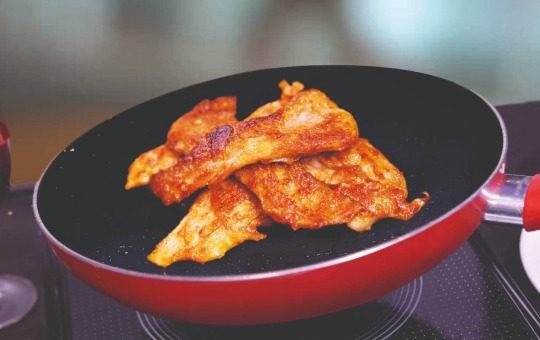
Understanding Veg Chicken: A Nutritious Alternative
What Exactly is Veg Chicken?
Veg chicken, often referred to as plant-based chicken or meat alternatives, is a protein-rich substitute crafted from a blend of plant-derived ingredients. These innovative products mimic the taste, texture, and appearance of traditional chicken, providing a savory experience without the use of animal-derived components.
Nutritional Composition of Veg Chicken
Despite its meat-free nature, veg chicken boasts an impressive nutritional profile. Rich in plant-based proteins, essential vitamins, and minerals, this delectable alternative offers a wholesome dining experience without compromising on nutritional value. From soy and pea protein to vital nutrients like iron and B-vitamins, veg chicken serves as a commendable source of sustenance for individuals seeking a balanced diet.
Unveiling the Health Benefits of Veg Chicken
1. Protein Powerhouse
Protein serves as the building block of life, playing a crucial role in muscle repair, growth, and overall cellular function. Veg chicken, abundant in plant-based proteins, offers a fulfilling protein source suitable for vegetarians, vegans, and individuals looking to reduce their meat consumption. Incorporating veg chicken into your diet ensures adequate protein intake, supporting muscle development and enhancing satiety levels.
2. Heart Health Promotion
One of the most notable advantages of veg chicken lies in its potential to promote heart health. Unlike conventional meat products, which may contribute to elevated cholesterol levels and cardiovascular risks, veg chicken offers a heart-friendly alternative. Low in saturated fat and cholesterol-free, veg chicken aids in maintaining optimal blood lipid levels, reducing the likelihood of heart-related ailments and enhancing cardiovascular well-being.
3. Weight Management Support
In the pursuit of a healthy weight, dietary choices play a pivotal role. Veg chicken, with its low-calorie content and high protein density, emerges as a valuable ally in the battle against excess weight. By fostering feelings of fullness and satisfaction, veg chicken helps curb cravings and promotes portion control, facilitating weight management endeavors without sacrificing flavor or nutritional value.
4. Environmental Sustainability
Beyond individual health benefits, embracing veg chicken aligns with broader environmental sustainability efforts. Traditional livestock farming practices often exert a significant ecological footprint, contributing to deforestation, greenhouse gas emissions, and water pollution. In contrast, veg chicken production entails fewer environmental repercussions, making it a more eco-conscious choice for conscientious consumers striving to reduce their carbon footprint.
Incorporating Veg Chicken Into Your Culinary Repertoire
Creative Cooking Ideas
From savory stir-fries to succulent sandwiches, the versatility of veg chicken lends itself to a myriad of culinary creations. Experiment with diverse recipes and cooking techniques to unlock the full potential of this plant-based delicacy. Whether you’re grilling, sautéing, or baking, veg chicken serves as a canvas for culinary innovation, allowing you to craft wholesome meals that tantalize the taste buds and nourish the body.
Dietary Diversity Enhancement
Integrating veg chicken into your dietary regimen introduces a refreshing dimension of variety and flavor. Whether you’re a seasoned vegan or a curious omnivore, incorporating veg chicken into your meals diversifies your palate and broadens your culinary horizons. Embrace the culinary adventure and savor the delectable delights of veg chicken in all its forms, from classic favorites to bold, inventive dishes.
Conclusion: Embracing the Virtues of Veg Chicken
In conclusion, the health benefits of veg chicken are as diverse as they are remarkable. From its protein-packed prowess to its heart-healthy attributes and environmental sustainability, veg chicken embodies the epitome of nutritious innovation. By incorporating veg chicken into your dietary repertoire, you embark on a journey of culinary discovery and wellness enhancement, reaping the rewards of a plant-powered lifestyle.
11 notes
·
View notes
Text
The Power of Plant-Based: A Guide to Veganism
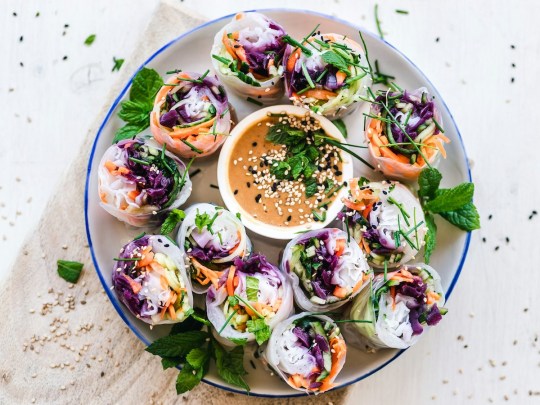
Veganism has gained significant traction in recent years, and for good reason. It's not just a passing trend; it's a movement that aligns with our desire for a healthier, more sustainable planet. By adopting a plant-based lifestyle, individuals contribute to their own well-being while making a positive impact on the world around them.
The power of plant-based living is becoming increasingly evident as veganism is not just a dietary choice, it's a lifestyle that encompasses compassion, health, and environmental consciousness. Discover the principles of veganism, the health benefits of a plant-based diet, its environmental impact, ethical considerations, tips for transitioning to a vegan lifestyle, and addressing common concerns.
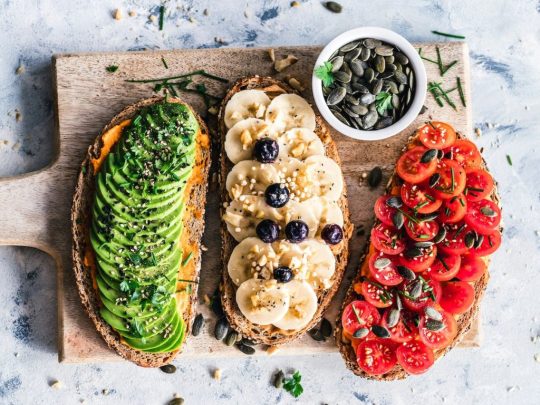
What is Veganism?
At its core, veganism is a philosophy that seeks to exclude all forms of animal exploitation and cruelty, whether in diet, clothing, or any other aspect of life. It's an ethical stance that promotes compassion towards all sentient beings and recognizes the interconnectedness of humans, animals, and the environment.
Health Benefits of a Plant-Based Diet
Embracing a plant-based diet can have profound effects on our well-being, and there are significant health benefits:
Nutritional Advantages: Plant-based diets are rich in vitamins, minerals, and fiber, providing essential nutrients for optimal health.
Disease Prevention: Studies have shown that plant-based diets can reduce the risk of chronic diseases such as heart disease, diabetes, and certain types of cancer.
Weight Management: A plant-based diet, when balanced and varied, can support healthy weight loss and weight management.
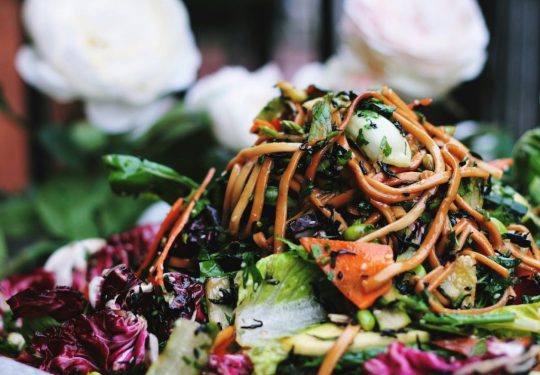
Environmental Impact of Veganism
The environmental consequences of animal agriculture are staggering. By adopting a vegan lifestyle, we can significantly reduce our ecological footprint.
Reduction of Greenhouse Gas Emissions: Animal agriculture is a major contributor to greenhouse gas emissions. By eliminating animal products from our diet, we can reduce our carbon footprint.
Conservation of Resources: Animal agriculture requires vast amounts of land, water, and feed. Shifting to plant-based alternatives allows for more efficient use of resources.
Preservation of Wildlife: Animal agriculture is a leading cause of deforestation and habitat destruction. Choosing plant-based options helps protect biodiversity and wildlife habitats.
Ethical Considerations
Ethics is at the core of veganism. By adopting a vegan lifestyle, we actively express our compassion for animals and advocate for their rights. Veganism encourages the use of cruelty-free alternatives and challenges societal norms regarding the treatment of animals.
Tips for Transitioning to a Vegan Lifestyle
Transitioning to a vegan lifestyle can be a gradual process. Here are some tips to help you navigate the journey:
Gradual Changes and Substitutions: Start by incorporating more plant-based foods into your diet and gradually eliminate animal products.
Meal Planning and Grocery Shopping: Plan your meals in advance and explore the abundance of vegan options available. Stock your pantry with wholesome plant-based ingredients.
Seek Support and Community: Connect with like-minded individuals, join vegan groups, and seek support from friends and family who understand and respect your choices.
Addressing Common Concerns
Transitioning to a vegan lifestyle often comes with questions and concerns. Let's address some common ones:
Protein Intake: Plant-based diets can provide ample protein through sources such as legumes, tofu, tempeh, and quinoa.
Nutrient Deficiencies: With proper planning and a varied diet, vegans can meet their nutritional needs. Pay attention to sources of vitamins B12, iron, and omega-3 fatty acids.
Social Challenges: Dining out or attending social events as a vegan may require some adjustments. Communicate your dietary preferences in advance, and be prepared with vegan-friendly alternatives.
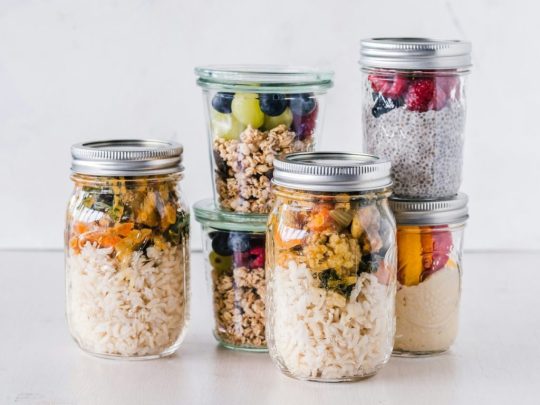
Vegan Recipe Suggestions
Here are a few easy to prepare and delicious vegan recipe suggestions to try:
Vegan Buddha Bowl: A colorful and nourishing bowl packed with a variety of vegetables, whole grains, and plant proteins.
Black Bean Tacos: Flavorful and satisfying, these tacos showcase how classic dishes can be made vegan without sacrificing taste.
Overnight Oats: A simple and nutritious breakfast option that can be customized with your favorite toppings and flavors.
Lentil Bolognese: A hearty and comforting meal that highlights the protein potential in vegan foods.
Additional Resources
For further exploration of veganism and its benefits, here are some recommended resources:
"How Not to Die" by Dr. Michael Greger: A comprehensive book that extensively covers the health benefits of a plant-based diet.
"Forks Over Knives" documentary: A compelling film that explores the correlation between diet and disease, highlighting the power of plant-based nutrition.
The Vegan Society website: A comprehensive online resource for anyone interested in veganism. It offers a range of information from basic principles to practical advice, recipes, and more.
"Earthlings" documentary: A thought-provoking film that sheds light on the ethics of animal use in various industries, encouraging viewers to reevaluate their choices.
Transitioning to a vegan lifestyle is not just a personal choice but it should be a conscious decision to make a positive impact on your health, the environment, and to do your part in protecting animal welfare. Start living a plant-based lifestyle and contribute to a more sustainable and compassionate world today. Every step you take on this journey matters. Embrace the power of plants, explore new flavors, and savor the incredible benefits that veganism brings to your life.
Read the full article
12 notes
·
View notes
Text
Ang Chong Yi-Is plant based protein right for you?
In the ever-evolving landscape of dietary choices, the spotlight is increasingly turning towards plant-based protein as a cornerstone for a healthier lifestyle. The benefits of embracing plant-based protein extend beyond personal health, including environmental sustainability, animal welfare, and budget considerations. From complete proteins to environmental sustainability, there are numerous reasons why incorporating plant-based protein into your diet is a wise choice. Ang Chong Yi, a famous food blogger, mentioned the compelling reasons to switch to protein-based foods in his recent blog titled Ang Chong Yi- the Top Reasons to Switch to Plant-Based Proteins. Here, let us decide if plant-based protein is right for you.

Complete Proteins
A prevailing misconception suggests that plant protein is inferior to its animal counterpart. While animal protein often contains a higher protein concentration per serving, plant-based sources can also offer complete proteins. Unlike animal proteins, which inherently possess all nine essential amino acids, some plant foods may lack a few. Yet, by diversifying your plant-based diet, you can easily obtain all the essential amino acids required for optimal bodily function. Spirulina, chia seeds, and maca powder are excellent examples of plant foods classified as complete proteins.
Sustainability in Every Bite
The traditional food system, driven largely by animal agriculture, contributes significantly to climate change, pollution, and resource depletion. Following a plant-based diet is a sustainable choice, as plant proteins are more efficient and less resource-intensive to produce than their animal counterparts. Beans, peas, and lentils require minimal resources and act as natural fertilizers, reducing the need for environmentally harmful synthetic fertilizers.
Nourishing Your Body Inside Out
Plant-derived protein sources are high in protein and rich in vitamins, minerals, fiber, and antioxidants. Studies comparing vegetarians to non-vegetarians have shown that plant-based diets are associated with higher intakes of fiber, vitamins A, C, and E, as well as essential minerals like iron, magnesium, and calcium. Additionally, plant-based diets have been linked to lower body mass index, improved insulin resistance, and a reduced risk of various chronic conditions such as heart disease and stroke.
Compassionate Eating
While efforts are being made to improve conditions, there is still a lack of comprehensive legislation to protect farm animals. Choosing plant-based protein is a compassionate decision that involves decreasing the reliance on animal products, thereby promoting ethical treatment of animals within the food industry. Watch out, Ang Chong Yi talks about the Singapore dishes you should never miss, where you can find a perfect meal for nature lovers.
Budget-Friendly and Adaptable
Contrary to the misconception that a plant-based diet is expensive, it can be surprisingly budget-friendly. Beans, lentils, and peas, among the most affordable sources of plant protein, are also incredibly versatile and recipe-friendly. Even higher-cost options such as nuts and seeds become cost-effective when purchased in bulk. These sources not only provide essential proteins but also deliver good fats and a host of other vital nutrients, offering exceptional value for your money.
Summing up
Plant-based protein is not just a dietary choice. It is a holistic approach to a healthier, more sustainable, and compassionate lifestyle. Making conscious choices about the foods we consume can have a profound impact on our well-being and the world around us.
10 notes
·
View notes
Text
BHARAT MORINGA

Title: Unveiling the Green Marvel: Moringa's Impact on Overall Health and Wellness
Introduction:
In the quest for a healthier lifestyle, individuals are increasingly turning to nature's bountiful offerings to meet their nutritional needs. One such powerhouse of nutrients that has gained prominence in recent times is Moringa oleifera, often referred to as the "drumstick tree" or simply "Moringa." This remarkable plant has been celebrated for its exceptional nutritional content and numerous health benefits. In this blog post, we delve into the myriad ways in which Moringa contributes to the overall development of health.
Rich Nutrient Profile:
Moringa is a nutritional powerhouse, boasting a diverse array of essential vitamins and minerals. It is a rich source of vitamin C, vitamin A, calcium, potassium, and iron, among others. These nutrients play crucial roles in supporting the immune system, maintaining bone health, and promoting overall vitality.
Antioxidant Properties:
The leaves of the Moringa tree are loaded with antioxidants, such as quercetin, chlorogenic acid, and beta-carotene. These antioxidants help combat oxidative stress in the body, which is linked to various chronic diseases and aging. By neutralizing free radicals, Moringa aids in protecting cells from damage and supports overall well-being.
Anti-Inflammatory Benefits:
Chronic inflammation is a root cause of many health issues, including heart disease and arthritis. Moringa possesses anti-inflammatory properties that can help reduce inflammation and alleviate associated symptoms. Regular consumption of Moringa may contribute to a lower risk of inflammatory conditions.
Blood Sugar Regulation:
Research suggests that Moringa may help regulate blood sugar levels, making it a valuable ally for individuals with diabetes or those at risk of developing the condition. The plant compounds in Moringa have demonstrated potential in improving insulin sensitivity, contributing to better blood sugar control.
Cholesterol Management:
Maintaining healthy cholesterol levels is crucial for cardiovascular health. Studies have indicated that Moringa may have a positive impact on lipid profiles, helping to lower bad cholesterol levels while promoting the increase of good cholesterol. This dual action supports heart health and reduces the risk of cardiovascular diseases.
Nutritional Support for Malnutrition:
Moringa is an excellent source of nutrition, especially in regions where malnutrition is prevalent. The plant's leaves are a cost-effective and sustainable solution to supplement diets with essential nutrients, addressing nutritional gaps and promoting healthy growth, particularly in children.
Enhanced Energy and Vitality:
The combination of vitamins, minerals, and antioxidants in Moringa contributes to increased energy levels and overall vitality. Regular consumption may help combat fatigue, boost stamina, and promote a general sense of well-being.
Conclusion:
Incorporating Moringa into your diet can be a simple yet impactful step towards enhancing your overall health and well-being. Whether in the form of Moringa tea, powder, capsules, or fresh leaves, this versatile plant has much to offer. However, as with any dietary supplement, it's essential to consult with a healthcare professional before making significant changes to your diet, especially if you have existing health conditions or are on medication. Embrace the green marvel that is Moringa and unlock its potential for a healthier, more vibrant life.
Certainly! Here are some hashtags you can use to amplify the reach of your blog post on Moringa's health benefits:

#moringa#MoringaHealth#Superfood#NutrientRich#WellnessJourney#HealthyLiving#PlantBased#AntioxidantBoost#NaturalHealth#HeartHealth#InflammationFree#ImmuneSupport#CholesterolControl#EnergyBoost#HolisticHealth#NutritionMatters#MalnutritionSolution#VitalityFromNature#GreenNutrition#HealthyChoice#WellnessWednesday
6 notes
·
View notes
Note
Have you eaten a hold container of Pillsbury funfetti vanilla artificially flavored
Nutrition Facts
Amount serving
Total Fat 60
Saturated Fat 3g
Sodium 65mg
About 13 servings per container Serving Size 2 Tbsp (34g)
Total Carbohydrate 24
Total Sugars 21g
Calories 140 por serving
Protein lo
Incl. 21g Added Sugars
BONGDVDaily Value
Not a significant source of ra cholesterol dietary fiber van calcium, iron and potassium
INGREDIENTS: FROSTING: SUGAR, PALM OIL, WATER. CORN SYRUP CORN OR LESS OF: SALT, MONO- AND DIGLYCERIDES, POLYSORBATE 60
SORBATE (PRESERVATIVE), SOY LECITHIN, XANTHAN GUM, NATURAL AND ANTIOXIDANTS (ASCORBYL PALMITATE, MIXED TOCOPHEROLS CHAND ARTIFICIAL COLOR, ASCORBIC ACID
CANDY BITS: SUGAR, VEGETABLE OIL (PALM, PALM KERNEL), MODIFIED F 2% OR LESS OF: ARTIFICIAL COLOR (INCLUDING YELLOW 5, YELLOW 6, BLUE 1, RED 40), CARNAUBA WAX.
CONTAINS SOYBEAN INGREDIENTS
Easy To Use
Store unopened container of frosting at room temperature, avoid
warm places
Store frosted cake loosely covered
Cover and refrigerate any remaining frosting for up to two weeks
More Tips & Tricks at PillsburyBaking.com
GLUTEN FREE
PILLSBURY, THE BARRELHEAD LOGO AND THE DOUGHBOY
CHARACTER ARE TRADEMARKS OF THE PILLSBURY COMPANY LLE
USED UNDER LICENSE. CONTAINS A BIOENGINEERED FOOD INGREDIENT
90504062
Frosting Before:D?
(don't ask how long this took)
Wow! That's a lot of words, I'll hand this over to my team! Hehe, I'll get them to make ..uh, what is this? Frosting? And then I'll eat it!
That's a lot of words that I'm having trouble reading..
3 notes
·
View notes